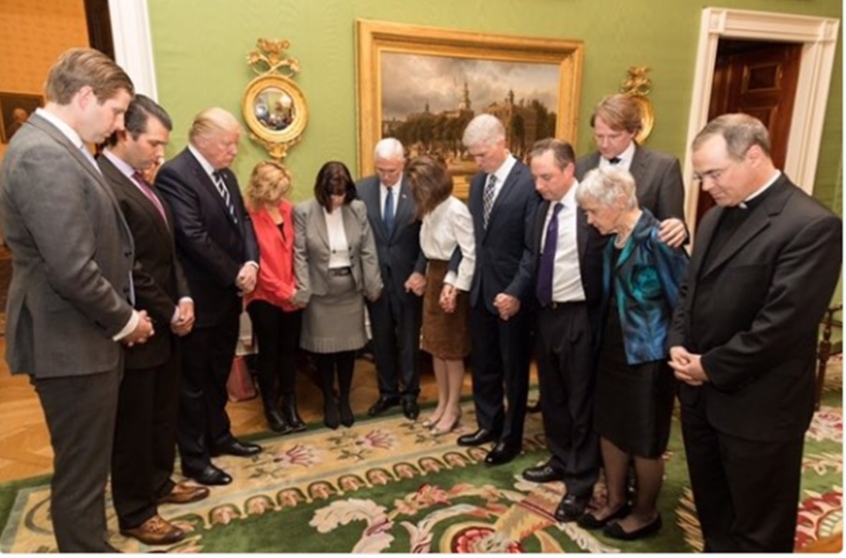The National Association of Evangelicals, which represents 45,000 churches across 40 different denominations, this week sought to clarify who evangelicals are when the word has been conflated with support for Donald Trump.
The NAE released a statement on Tuesday entitled 'Evangelicals — Shared Faith in Broad Diversity'.
The statement implies that evangelicals should not all be classed together with as white evangelicals, 80 per cent of whom supported Trump's election as president.

'Because there are millions of us in the United States and far more of us in other countries around the world, there are subgroups identified by where we live, how we vote, the level of our education or even our local cultural expressions,' the NAE statement reads.
'Each has distinctive beliefs and practices that may be unfamiliar or uncomfortable to one another. Sometimes these subgroups or their leaders are identified as typical of all evangelicals even though there is no consensus, connection or communication between them.'
The diversity of evangelicals 'ranges across geography, race, politics, education and economics,' the statement says.
Crucially, NAE asserts that evangelicals 'identify ourselves by our spiritual convictions', not political convictions.
Those include 'the authority of the Bible, salvation through Jesus Christ alone and living out our faith in everyday life, especially sharing the good news of Jesus with others. We share the historic Christian beliefs in God the Father, Son and Holy Spirit. We believe Jesus died on the cross and was resurrected to life.'
The statement continues: 'What all evangelicals share in common does not require organizational connection, denominational affiliations or shared leadership. Our common bond is personal faith in Jesus Christ as Saviour and Lord.
'Throughout history and ongoing today is the compassion and care that evangelical Christians have for others. This has led to sending missionaries, founding colleges, building hospitals, feeding the hungry, seeking justice for the poor and serving as the agents of Jesus in a broken world.
'The variety of evangelicals and our many causes have led evangelicals to approaches that differ from one another and that even cause conflict — both with society at large and with other evangelicals. We have both succeeded and failed but we have not given up. We return to the teaching of the Bible and the leadership of Jesus in our quest to be faithful to our callings to love God, love our neighbours and share our faith.'
Concluding, the statement says that 'our identity is in our faith in the midst of our diversity'.
The statement comes after a group of around 50 evangelical leaders and scholars last month met at Wheaton College in Illinois to discuss the state of evangelicalism during the Trump era and the 'series of challenges approaching us from both the right and the left'.
The meeting was attended by prominent evangelical leaders including the pastor and author Tim Keller, New York City megachurch pastor AR Bernard, and World Relief's Jenny Yang, vice president of advocacy and policy at the humanitarian arm of the NAE.
'I think what you had is you had people in the room who voted for Trump. I think you had people in the room who either didn't cast a vote or voted for a third party candidate and you had some people in the room who voted Democrat,' meeting participant Darrell Bock from Dallas Theological Seminary told The Christian Post last month. 'In that sense it was a big tent meeting.'













